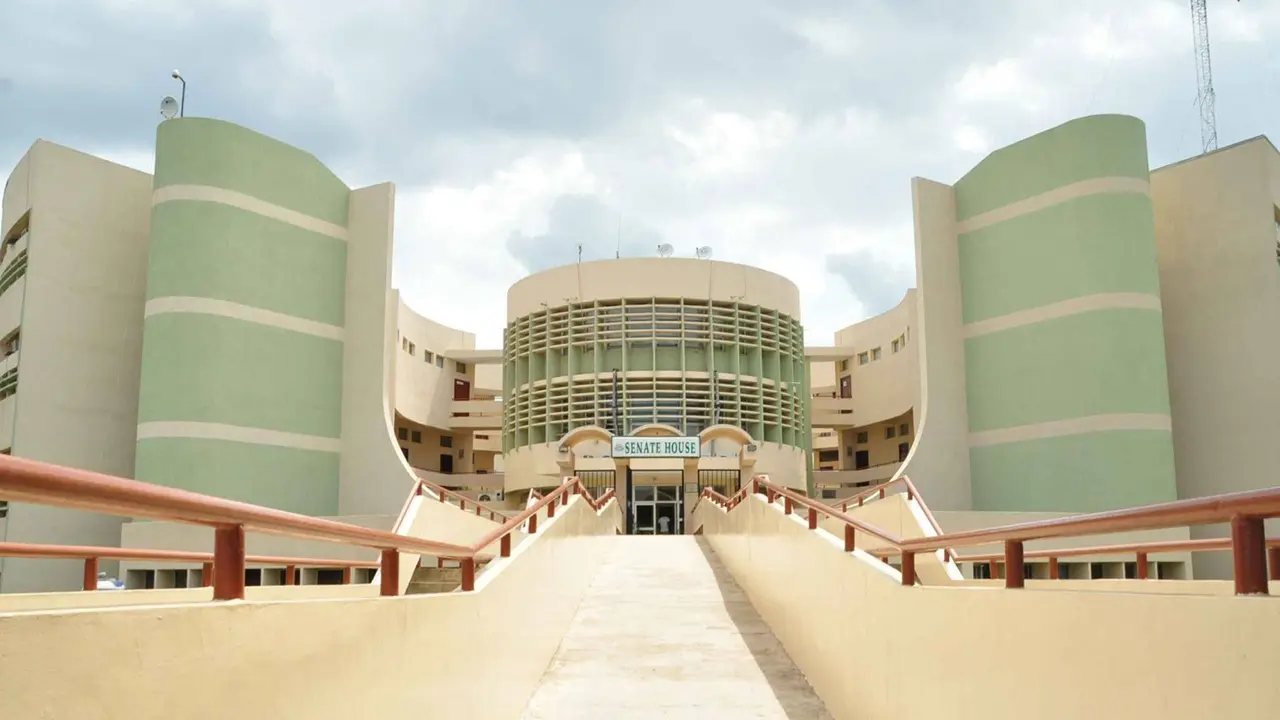Everything You Need To Know About WAEC: SSCE, GCE
Established in 1952, the examination council conducts the West African Senior School Certificate Examination (WASSCE) and has contributed to education in West Africa with the number of examinations they have coordinated, and certificates they have issued.
Dr. Adeyegbe, former HNO of WAEC Nigeria (2004) said “the council has developed a team of well-trained and highly motivated staff, and has administered examinations that are valid and relevant to the educational aspirations of member countries”.
The council also formed an endowment fund, to contribute to the education in West Africa, through lectures, and aid to those who cannot afford education.
READ ALSO: Waec Expo 2020 | 2021 Waec Runz Answers | Waec Runs 2020/2021
In a year, over three million candidates registered for the exams coordinated by WAEC. The council also helps other examination bodies (both local and international) in coordinating Examinations.
Effective 2018, the West African Examinations Council WAEC will be conducting two series of the West African Senior School Certificate Examination (WASSCE) for Private candidates. The First Series will be conducted between January and February while the Second Series will be conducted between August and October every year.
The WASSCE for Private Candidates, 2018 – First series will be an urban-based examination. Nineteen (19) Subjects will be available for the examination.
What are the functions of WAEC?
- Assist in the development of sound education
- Ensure that educational standards are maintained
- Give the people of West Africa a vision of the great potentials which lie beyond examinations.
What is the vision of WAEC
To be a world-class examining body adding value to the educational goals of its stakeholders.
What is the mission of WAEC?
To remain Africa’s foremost examining body, providing qualitative and reliable educational assessment, encouraging academic and moral excellence and promoting sustainable human resource development and international
co-operation.
What are WAEC core values?
- Excellence
- Integrity
- Professionalism
- Accountability
- Transparency
- Teamwork
- Innovativeness
How many countries use WAEC?
There is examination board that covers the five Anglophone West African countries which are: Ghana, Nigeria, Sierra Leone, Liberia, and the Gambia.
What is the WAEC website?
WAEC official websites are:
Where is WAEC Headquarters/office located?
ACCRA
Examination Loop (Behind Ridge Hospital)
P.O. Box GP 125, Accra, Ghana.
Tel: (233-302)-248967
Fax: (233-302)-222905
e-mail:[email protected]
WAEC INTERNATIONAL OFFICE, NIGERIA
The West African Examinations Council
International Office
Plot 6, Lateef Jakande Road
Agidingbi, Ikeja
Lagos, Nigeria
Tel: (234-1)-5820266,5820704,7915675,7914351-6
Fax:(234-1) 5820265
e-mail:[email protected]
NIGERIA NATIONAL OFFICE
21, Hussey Street, Yaba;
Private Mail Bag 1022, Yaba, Lagos.
Tel: (01) 7305150,961016,2136455,8974569,
01-2918562
e-mail:[email protected]
[email protected],
[email protected]
WAEC FAQS
1. How does a person register for WAEC examinations, for instance, the WASSCE?
The Council usually advertises entry periods and entry procedures in national newspapers. In respect of the WASSCE for example, the Council conducts two exams yearly; One for school candidates and the second for private candidates.
Registration for WAEC WASSCE is done through the Internet (online). The May/June exam is for school candidates and all entry formalities are undertaken by the schools presenting candidates.
In the case of the private candidates’ examination, entry is on an individual basis. A prospective candidate purchases the entry scratch card which enables him/her to complete the entry form on the Council’s registration website-www.waeconline.org.ng. A registered candidate subsequently prints out from the website the identification photo card, which contains vital information about the candidate’s centre name, location, number and the subjects entered for. The examination timetable and subject syllabuses are also made available to prospective candidates on the website.
It is important to note that once the prescribed fee is paid to the accredited selling agent, a prospective candidate obtains two scratch cards, one for the online registration and the other for the online checking of results.
2. What are the entry regulations for the WASSCE Examination?
Candidates are required to enter and sit for a minimum of eight (8) and a maximum of nine (9) subjects.
These must include the following :
- English Language
- Mathematics
- At least one Nigerian Language (see footnote)
- At least one of Physics, Chemistry and Biology.
- At least one of Literature-in-English, History and Geography.
- Agricultural Science or at least one vocational subject.
These are the core subjects.
In addition to the above, every student must offer any three of the underlisted subjects not already offered as core subjects:
Biology, Economics, Physics, Book-Keeping, Chemistry, Typewriting, Further Mathematics, Shorthand, Commerce, History, Geography, Literature-in-English, Agricultural Science, Woodwork, Health Science, Auto-Mechanics, Building Construction, Music, Clothing and Textiles, Art, Christian Religious Knowledge, French, Islamic Studies, Physical Education, Arabic Studies, Government, Metal Work, Applied Electricity, Electronics, Foods and Nutrition, Technical Drawing Home Management.
NOTE: The Federal Ministry of Education has given a waiver
in respect of Nigerian Languages during the 2003 examination. This implies that candidates’ entries are valid with or without a Nigerian language for the period of the waiver
3. Who are those qualified to sit for the WASSCE?
In the case of the school examination, the prospective candidate must be in the SS 3 class in a recognized school,
For the private candidates’ examination, any one of the following categories may enter for the WASSCE:
- Those who have attempted the WASSCE in previous years;
- Those who have attempted the GCE and obtained a pass in at least three subjects;
- Those who have passed the Teachers’ Grade two examination.
4. Does WAEC prepare candidates for its examinations?
WAEC does not prepare candidates for its examinations by establishing secondary schools or tutorial centres, and no such institutions are affiliated to the Council. WAEC provides feedback in the form of Chief Examiners’ Report on candidates’ perofrmance in the various papers for each examination diet, which helps schools and private candidates to prepare adequately for subsequent examinations. The Chief Examiners’ Reports are avialable for sale at the Council’s offices nationwide.
5. Who are the officials involved in the conduct of WAEC examinations?
There are three categories of officials: supervisors, invigilators and inspectors.
Supervisors are teachers nominated by the various State Ministries of Education. They are actually responsible for conducting the exams at the various centres. It is their responsibility to collect question papers from the custodian and return answer scripts to the custodian centres.
Invigilators are usually teaching staff nominated by their school principals to assist the supervisors at the centres, while inspectors are WAEC staff members who go from one centre to another when the examination is in progress.
6. Does WAEC have a way of disciplining erring functionaries?
Yes. Reports about functionaries who are teachers are made to the various State Ministries of Education and All Nigerian Conference of Principals of Secondary Schools (ANCOPSS) for disciplinary measures. Such functionaries have been disciplined in the past. WAEC has its own procedures for disciplining erring inspectors.
7. Do WAEC officials mark candidates’ scripts?
No. The marking of scripts is handled by examiners appointed by WAEC. They are usually educationists who are familiar with the classroom situation and their identities are not supposed to be disclosed.
8. Who are these examiners and how are they appointed?
WAEC examiners are mostly graduate teachers in secondary schools, and some lecturers in colleges of education, universities and polytechnics.
A prospective examiner must be a graduate in the subject he is appointed to mark. In addition, he must have a minimum of two years of classroom teaching experience and must be recommended by the principal of the school in which he teaches.
9. How does WAEC ensure standardization in grading?
First, a committee of experts draws up a marking guide. All appointed examiners are then thoroughly drilled in all aspects of the marking scheme in a simulated marking exercise called co-ordination. Actual marking does not start until the coordinating officers are satisfied that all examiners know what is required of them. Even when actual marking begins, the examiners are not left entirely on their own. They are organised into small groups, each being supervised by a highly experienced examiner called a Team Leader. The Team Leader checks and vets the group members’ marking progressively to ensure that they are keeping to the guidelines. The Team Leaders themselves are supervised by more experienced examiners called Chief Examiners. When marking is finally completed, WAEC still goes ahead to employ another group of people called Checkers. The main role of Checkers is to ensure that all marks awarded by examiners are correctly recorded and transferred to the appropriate score sheets.
10. Can a candidate register a protest over his examination result? If ‘yes’, how?
Yes, but only if he is a school candidate. No provision is made for a private candidate in this regard. Even then, a school candidate does not write directly to WAEC. It is his principal who, knowing the candidate’s ability, forwards a request for the review of the candidate’s scripts. Of course, there is a specified fee to be paid on every paper to be reviewed. Such requests should be sent in within sixty days of any examination.
11. Why are some results cancelled?
Results are cancelled when candidates are found guilty of examination malpractice.
12. What are the acts that constitute examination malpractice?
The following, among others, constitute examination malpractice:
— Candidates bringing books or cribs into the
examination hall;
— Insulting or assaulting any examination official;
— Swapping of scripts in an examination hall;
— Replacing their answer scripts with another one during or after the examination;
— Impersonation;
— Taking part in mass or organised cheating in the exam hall;
— All other acts that contravene the rules governing the conduct of the examination.
A comprehensive list of offences is provided in Council’s Regulations & Syllabuses.
13. Can one combine May/June and Nov/Dec WASSCE results for admission purposes?
Yes.
14. How can a candidate get errors on his/her certificates corrected?
A Private candidate sends his/her request for an amendment to WAEC directly, while in the case of a school candidate it is the principal who makes the request.
In the two instances, the original copy of the certificate should be sent along with the application for amendment. WAEC charges a fee for the amendment where it is discovered that the error emanated from the candidate, otherwise, it is free.
15. Why is it that candidates sometimes have partial release of results?
Results are partially released due to queries arising from one or a combination of the following mistakes:
- Wrong transfer of examination numbers in one or more papers;
- Failure to shade examination numbers;
- Shading objective sheets with biro pens instead of pencil;
- Mistakes in entries leading to duplication of subjects.
16. How does a candidate collect his/her certificate?
School candidates collect their certificates from their schools while private candidates obtain theirs directly from WAEC.
17. What Is the official life-span of WAEC Certificates?
WAEC certificates have no expiry date.
18. Does WAEC replace lost certificates?
No. Instead it issues statements of result to the owners of lost certificates or, when necessary, confirms their results for a fee.
19. How does one process a confirmation of result?
A confirmation of result can be processed by submitting to WAEC the following:
— One plain foolscap envelope
— One stamped, addressed envelope for each confirmation of results
— =N=250 postage stamp for local mails
— =N=350 postage stamp for international mails
— An affidavit sworn to in a court of law which should contain the following details:
Candidate’s Name (in full)
Name of Examination
Year of Examination
— Two copies of candidates’ passport photograph per result
— Fee for confirmation of the result is:
=N=10,000.00 per result for overseas institutions
=N=5,000.00 per result for institutions within Nigeria
Confirmed results are not handed over to candidates. They are sent directly to the institutions/establishments which candidates want to provide with the information.
20. What channels of communication exist between candidates and WAEC?
WAEC discourages direct communication with school candidates. School candidates are expected to send their complaints to WAEC through their school principals, while private candidates contact WAEC directly.
21. Which WAEC Offices issue certificates?
Candidates can collect their certificates from WAEC Zonal and Branch offices in charge of the state where they sat for the examination.
22. Does WAEC accredit certificates, say, from foreign institutions?
No. Accreditation is carried out by the Federal Ministry of Education alone.
Stay up to date with WAEC news by liking our Facebook page.



